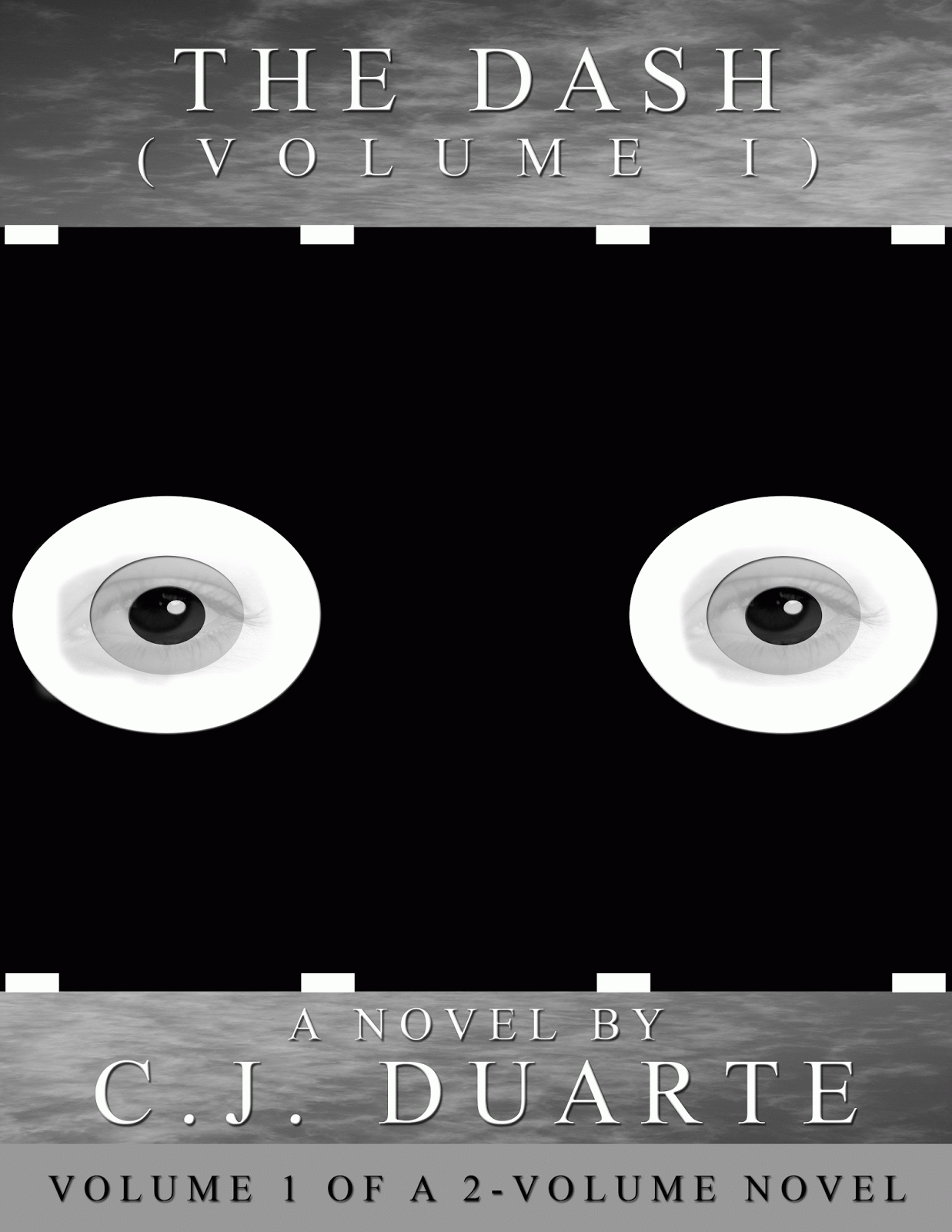Title: The Dash: Volume I
Author: C. J. Duarte
Publisher: Baico Publishing
ISBN: 9781926945354
Pages: 716, Kindle/Paperback
Genre: Fiction
Reviewed by: Kristnee Schnee, Pacific Book Review
Book Review
Claire’s dreams have been reduced to a single recurring image, that of an abandoned train station. Once bustling and full of life, it sits decaying and overgrown with weeds. An aspiring writer, Claire sees this image as the center of her unwritten novel. The process of bringing this novel to fruition, though, is stalled as Claire cannot get beyond that first initial page and that station where the trains no longer come. Frustrated with her lack of progress, she fails to go to work after a sleepless night. Waking to pounding on the door, she discovers coworkers at her door. Hearing their demands that she go to work, she sees no hope in her current life and no choice but to escape the group, stepping out the window into the void below.Rather than a terrifying demise, Claire awakens in a monochromatic world, one that is both strange and oddly familiar. Memories of her former life and ambitions are suppressed, only to resurface occasionally as flashes of insight or understanding. She is troubled at first by the lack of a past, but with the help of a lovable and patient man, Art Rukin, Claire is able to form a new life in the snowy, small town of Cloak Valley. As with many fictional small towns, Cloak Valley is filled with an eccentric cast of characters, but there is a much darker side to these inhabitants. Indeed, Claire finds few congenial citizens in this odd assortment until she happens upon the Des Moines family mansion during a misadventure in the woods near Art’s house.
The Des Moines family members, rich and unconventional, are the outcasts of Cloak Valley. The reason for this status is not clear, especially considering the odd qualities of the citizens of the area. They do, however, provide a caring and safe environment for Claire, and so they become a second family for her. Indeed, no matter the chaos that surrounds the family members, they constantly retain a certain calm that attracts both Claire and Art. It is with these outcasts that the couple—neither of whom really fit in with the larger society of Cloak Valley—find their most enjoyable moments and the space to explore their own love for each other.
In The Dash: Volume I, C.J. Duarte creates an imaginative and often frightening world, one in which colors are flattened to the various shades of black and white. For the citizens of Cloak Valley, this reduction of the senses is furthered by the constant snow cover, imagery that seems to indicate the general emotional and social atmosphere of the town. This feeling of oppression and sickness is contrasted with the light and warmth of the Quyon Mountain region, the vacation spot favored by the Des Moines family. Yet even that area is invaded by the emotional and often literal darkness that pervades the town of Cloak Valley. Duarte succeeds in this creation of an atmosphere that can certainly be compelling. The tone of the book as well as the symbolism seem to be a means toward examining the extremes of human behavior, a world where generally the outcasts show kindness toward others, with the rest of society leaning toward depravity.
As this is only volume I of The Dash, it is difficult to make any conclusions regarding the story. With the multitude of characters introduced, though, the reader often feels confused as to the direction of the plot, and Duarte leaves few clues for the reader. Those who enjoy speculative fiction will find the monochromatic world of Cloak Valley intriguing, however. Finishing the book, one returns to the original image, that of the abandoned train station; it will be interesting to see how Duarte explores this further in volume II of the novel. Throughout it all, Duarte surely exhibits an imagination that is unique among authors and provides a new voice in modern fiction with the novel, The Dash: Volume I.


